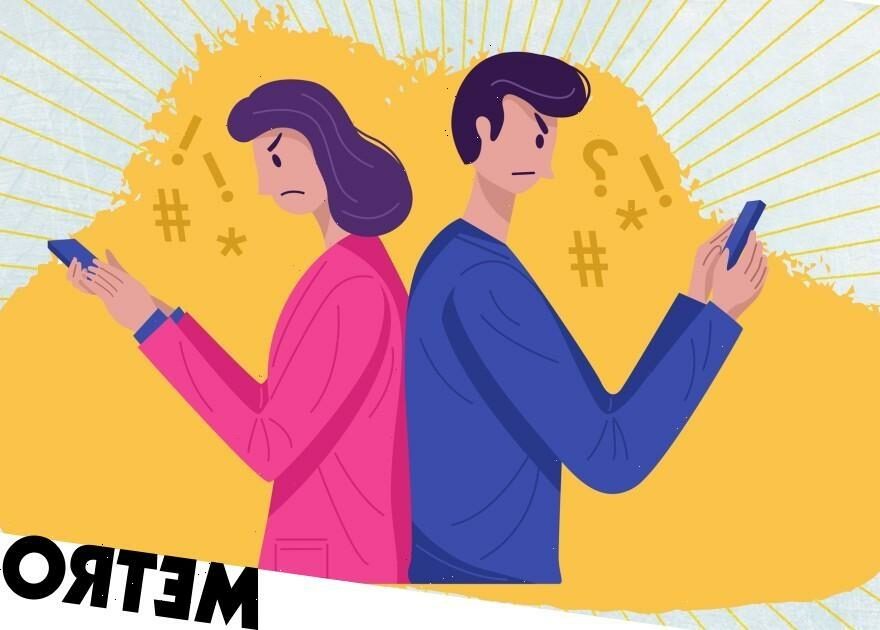
‘If they tell you “sorry I forgot to text you last night”, tell them “it’s okay, your competition didn’t” #staytoxic.’
‘If you get in an argument tell them “I’m not interested in being disrespected by someone I lowered my standards for” STAY TOXIC.’
If you’re an avid TikTok scroller like the rest of us, it’s incredibly likely that you’ve been come across ‘#staytoxic’ videos offering alternative dating advice.
In the most simple terms, ‘stay toxic’ videos share toxic dating tips, including how to keep someone interested, how to play with someone’s emotions and how to get someone’s attention – all through using manipulative behaviours.
And to say they’re popular is an understatement. Videos with #StayToxic on the popular social media platform have amassed a whopping 542.8million views – that’s a whole lot of consumption of bad advice.
Lol well #fyp #staytoxic
It’s not just the #StayToxic tag taking off, as when looking through the hashtag, TikTok offers suggestions as to what you might want to look at next based on what others have searched for, including ‘stay toxic women’, ‘toxic tips to make them obsessed’ and ‘toxic replies’.
But is it really as ‘toxic’ as it all seems? And in an era where we’re now challenging harmful dating behaviours such as ghosting and gaslighting, why is this trend going viral?
As YouTuber Nick Green (greenisnotnick) explains in his video ‘what is the stay toxic trend on TikTok’, some of the videos you’ll find under this hashtag on TikTok are very much satire, but the concern is that some are not – with many flocking to the comments section of some videos to share their approval.
In one TikTok video from @jayoffline, who has three million followers and a dedicated playlist of ‘toxic therapy (funny)’ videos that he’s created, he shares a clip of him dancing with the caption ‘text your ex at 1am “I’m here”… then say “nvm wrong number” #staytoxic’.
Although the video, which has now been liked over 700k times, is clearly meant as a joke – the comments section of the video is harder to decipher.
‘Bro giving me too many ideas’, writes one viewer, while another adds ‘I did it and she cried hahahahahaha’.
Friendly reminder to set the bar ☕️ #StayToxic #coffeetime #storytime #saythis #dating #relationships
Gigi Engle, ACS, certified sex educator at 3Fun and author of All The F*cking Mistakes: A Guide To Sex, Love, And Life, warns that TikTok’s youngest users may not see the difference between what is a parody and what isn’t.
She tells Metro.co.uk: ‘The dangers with this trend are that there are a lot of really young and impressionable people out on TikTok who are going to see this and think it’s good advice or sound advice.
‘Even for people who understand that it is, for the most part, a tongue in cheek video trend, it still makes acting like a rude, hurtful, selfish person seem cool and desirable.
‘When we normalise being unkind and toxic towards people, it can become embedded in our culture.’
There’s also the risk that the more someone interacts with videos with the hashtag, the more their TikTok algorithm may start showing less satire content as the line between the two is blurred.
Writer and certified sex therapist Aliyah Moore explains: ‘While most people make light of the #staytoxic trend, the underlying danger of supporting this type of content is that it influences young people to do exactly what you don’t want to do if you’re in a romantic relationship.

‘And when it gets traction from clicking on it, following, or commenting, the algorithm is going to pick that up and then start to expose you to similar content.
‘When you’re constantly seeing familiar content on social media, especially TikTok, it reinforces your thinking – most probably tryto join the bandwagon, which then affects how people normally perceive healthy behaviours and how relationships are supposed to work.’
With the volume of likes and shares these videos are garnering, the trend taking off is no surprise as people race to create similar content to bag themselves the same results.
For some of us, the content may even be relatable – there has always been the temptation to ‘get your own back’ after a bad breakup or when someone else’s toxic behaviour has hurt you.
‘Perhaps you’ve done something similar yourself at some point, or at least considered it. Or a friend might have been in a comparable situation,’ says Jessica Alderson Co-Founder and Relationship Expert at SOSYNCD.
‘In addition, seeing other people engage in unhealthy behaviours can make us feel better about ourselves because it’s a reminder that we aren’t the only ones who have flaws. It can be a relief, in some ways, that other people aren’t perfect either.’
As the trend continues to fly, with no sign of slowing down, what can we do to make sure people know the difference between a joke on a social media platform and actively dangerous behaviour?
For sex therapist Aliyah, it’s all about having open and honest conversations with those most susceptible to being influenced by social media.
‘We need to heighten the importance of educating young people about healthy relationships,’ she says.
‘In healthy relationships, people are loved and supported and there is clear and constructive communication.
‘Also, parents and guardians should be at the forefront of what young people hear and view online. That way, content can be filtered and chances of seeing prejudicial information can be mitigated.’
Do you have a story to share?
Get in touch by emailing [email protected].
Rush Hour Crush – love (well, lust) is all around us
Visit Metro’s Rush Hour Crush online every weekday at 4:30pm.
Tell us about your Rush Hour Crush by submitting them here, and you could see your message published on the site.
Source: Read Full Article
